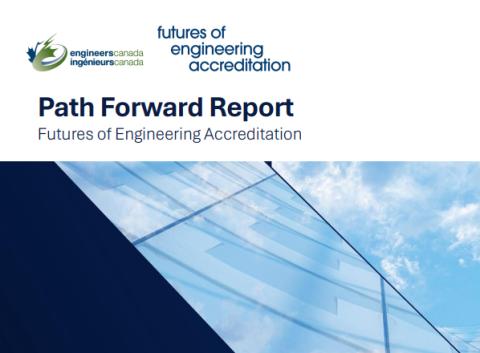Engineers Canada's “Path Forward Report”
Realizing Futures of Engineering Accreditation
Engineers Canada launched the Futures of Engineering Accreditation (FEA) project in 2021 -- a multi-year initiative to assess and modernize the Canadian engineering accreditation system. At the heart of the FEA project was a strategic priority outlined in Engineers Canada’s 2022–2024 Strategic Plan: to examine how the current accreditation system serves today’s needs and how it must evolve to support the future of engineering in Canada. The project team began by conducting a comprehensive benchmarking analysis, studying accreditation practices in other jurisdictions and regulated professions across Canada. They also examined emerging trends in engineering education, both domestically and internationally.
Over the course of three years, Engineers Canada engaged with a wide range of stakeholders, including educators, regulators, deans, engineers-in-training, employers, and practicing engineers. Through collaborative design sessions, workshops, interviews, and surveys, the FEA team gathered diverse insights and expertise from across the engineering ecosystem.
The culmination of this extensive work is the FEA Path Forward Report, a milestone document that presents 18 strategic recommendations for transforming Canada’s engineering accreditation system. The report proposes a shift toward outcomes-focused accreditation -- an approach that prioritizes the knowledge, skills, and competencies engineering graduates must possess, rather than focusing solely on program inputs.
Although the FEA project officially concluded with the release of the Path Forward Report, the work is far from over. As Engineers Canada embarks on its 2025-2029 Strategic Plan, the FEA Path Forward Report sets a foundation for the new strategic direction, "Realizing Accreditation and Academic Assessments." With this initiative underway, staff at Engineers Canada are now working on implementing approved recommendations and supporting the Engineers Canada Board to determine further steps.

© Copyright 2026 New Jersey Institute of Technology


